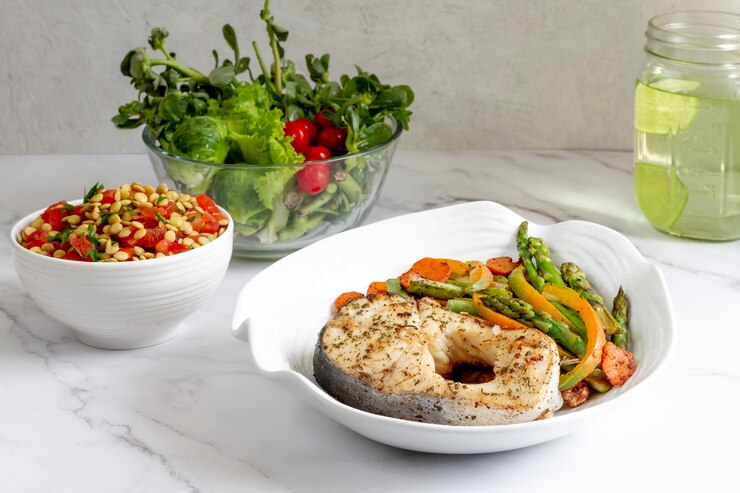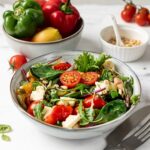When it comes to healthy eating, focusing on what you add to your plate can be more impactful than what you take away. Filling your dinner with nutrient-packed foods like whole grains, lean or plant-based proteins, and lots of vegetables can naturally crowd out less healthy options while supporting your overall well-being. Here are 10 of the healthiest foods to incorporate into your dinner routine.
Salmon
Salmon is a powerhouse of nutrition, loaded with omega-3 fatty acids, choline, and high-quality protein, making it excellent for brain and heart health. It’s also versatile—try it grilled, baked, or even canned. For inspiration, whip up Honey Garlic Salmon or Easy Salmon Cakes for a quick and delicious dinner.
Sweet Potato
Rich in fiber and packed with vitamin A, sweet potatoes are a nutrient-dense alternative to white potatoes. They’re delicious baked, roasted, mashed, or stuffed. For added variety, experiment with purple or white sweet potatoes, which offer unique phytonutrients.
Chickpeas
Chickpeas are a plant-based protein superstar, offering fiber, selenium, and folate. Their low glycemic index helps stabilize blood sugar. Toss them into soups, salads, or pasta, or use them as a meat substitute in casseroles. Not sure where to start? Try recipes like Chickpea, Beet & Feta Salad with Lemon-Garlic Vinaigrette.
Lentils
These tiny legumes pack a punch with plant-based protein, fiber, and essential nutrients like iron. Lentils are linked to heart health and a lower risk of chronic diseases. Use them in soups, stews, or veggie burgers. A favorite is the flavorful Squash & Red Lentil Curry.
Dark Leafy Greens
Spinach, kale, Swiss chard, and collard greens are loaded with vitamins A, C, and K, plus iron and potassium. They’re easy to incorporate into soups, salads, grain bowls, or pasta sauces. Pro tip: Sauté greens with garlic and olive oil for a simple, nutritious side.
Tempeh
A fermented soy product, tempeh provides gut-healthy prebiotics and over double the protein of tofu. It absorbs flavors well, making it ideal for stir-fries, grain bowls, or even sandwiches. Start with dishes like Sesame-Honey Tempeh & Quinoa Bowl or Gochujang-Glazed Tempeh & Brown Rice Bowls.
Wheat Berries
These nutty whole grains are a fantastic source of fiber and protein, promoting steady energy levels and heart health. Use them in grain bowls, salads, or even soups. A simple Wheat Berry, Chickpea & Feta Salad can elevate your dinner.
Olive Oil
A Mediterranean diet staple, olive oil is rich in unsaturated fats and antioxidants, offering cardiovascular and anti-inflammatory benefits. Drizzle it over salads, use it in cooking, or finish roasted vegetables for a flavor and nutrition boost.
Tomatoes
Packed with lycopene, an antioxidant linked to reduced cancer risk and lower cholesterol, tomatoes are a year-round staple. Cooked tomatoes, such as in pasta sauces, offer even more lycopene, especially when paired with olive oil. Enjoy dishes like Tomato Salad with Lemon-Basil Vinaigrette or a hearty marinara.
Cabbage
Cabbage is a humble vegetable with extraordinary benefits. A member of the cruciferous family, it’s rich in fiber and antioxidants. Incorporate it into stir-fries, slaws, or roasts. Recipes like Balsamic Roasted Cabbage and Spicy Cabbage Slaw make it easy to love this veggie.
Adding these nutrient-dense foods to your dinner rotation not only enhances your meals’ nutritional profile but also introduces new flavors and textures to enjoy. Start with these ideas, and you’ll be on your way to more satisfying and health-boosting dinners.








